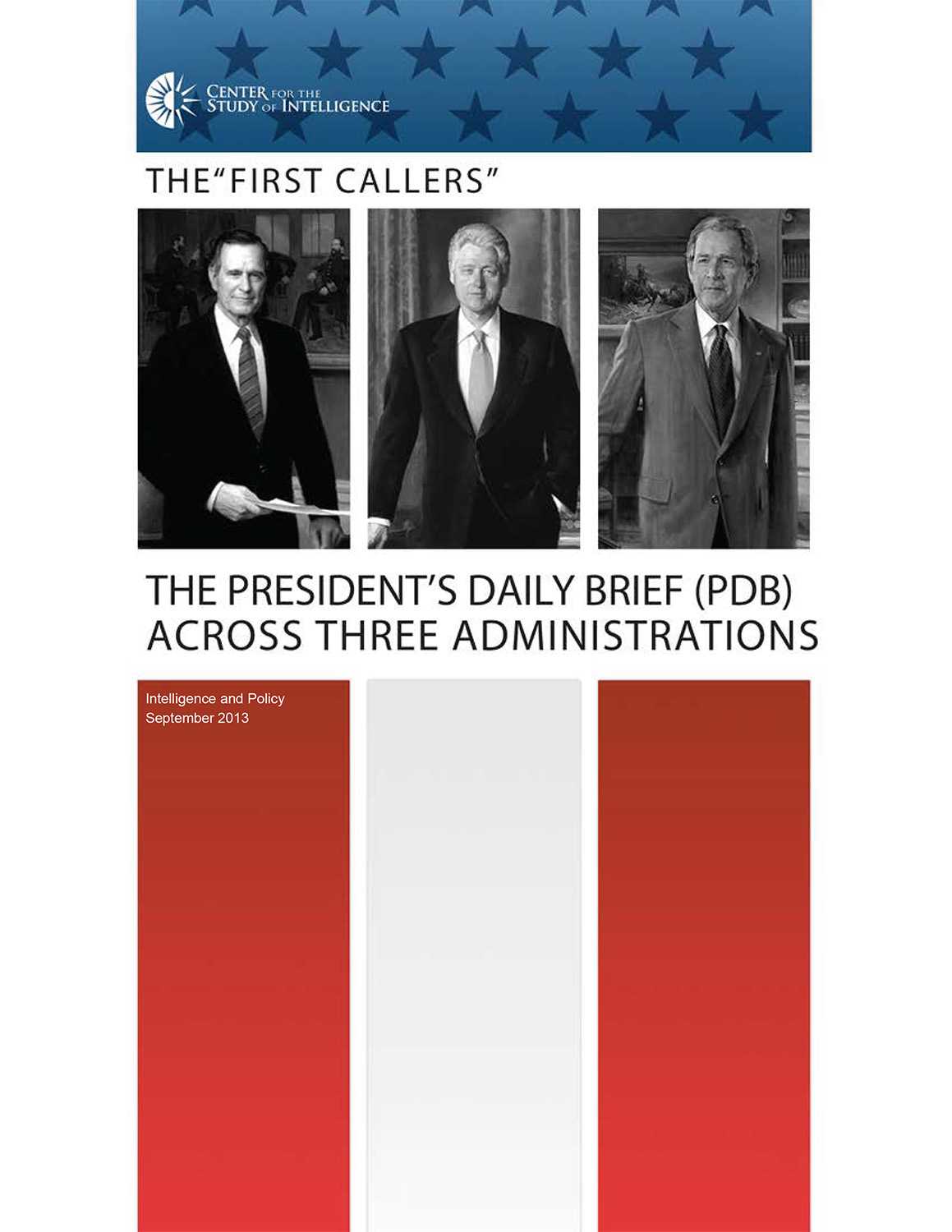Publication Details
By: Gregory F. Treverton
Over six decades, and across 13 presidential administrations, a dozen and a half directors of central intelligence (DCI), and five directors of national intelligence (DNIs), the relationship between intelligence and policy has, not surprisingly, had its ups and downs; at times it has been easy and complementary and at others, contentious and accusatory. This case study looks at the keystone of that relationship, the President’s Daily Brief (PDB), examining how and why it was perceived and used as it was during the presidencies of George H.W. Bush, William J. Clinton, and George W. Bush. The purpose is not simply to provide a historical account, but also to draw lessons to ponder in thinking about future best practices for the PDB—as both document and process—as integral to the intelligence-policy relationship.
Editor’s Notes (July 2016): This is one of three monographs posted in CSI Books and Monographs that were produced during 2013–2015 by the RAND Corporation under CSI’s sponsorship. The principal author of all three is Gregory F. Treverton, who at the time of writing was a senior researcher at the RAND Corporation. The work represents one of the missions of the Center for the Study of Intelligence, which is to study important aspects of US intelligence support to policymakers and to derive lessons from such studies that may be applied in the present and the future. Originally published for official use only, these three studies have been reviewed for classification purposes and are made available here as wholly unclassified products. The other titles in this three-part posting are CIA Support to Policymakers: The 2007 NIE on Iran’s Nuclear Intentions and Capabilities (2013) and CIA Support to Policymakers: Unheeded Warning of War (2015).
These reports are based on reviews of unclassified documents, publicly available oral history interviews, and interviews with senior policymakers involved in the events they describe. All statements of fact, opinion, or analysis expressed in them are those of the author or authors. They do not necessarily reflect official positions or views of the CIA or any other US government entity, past or present. Nothing in the contents should be construed as asserting or implying US government endorsement of an article’s factual statements and interpretations.
